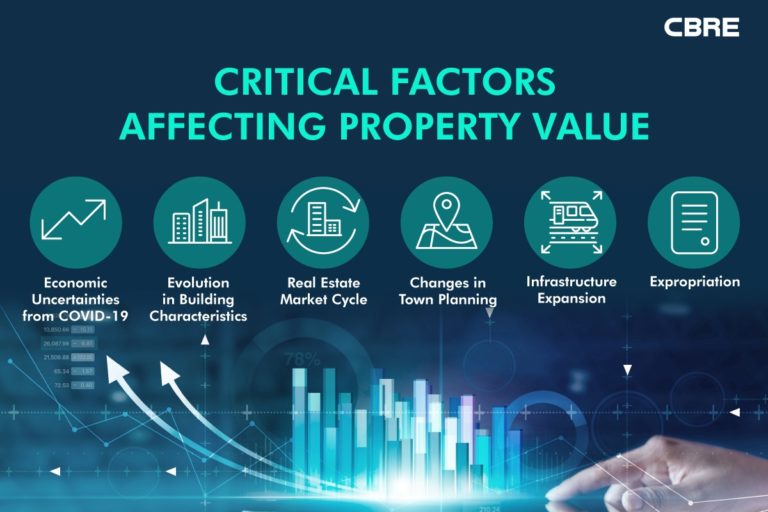Amid the ongoing real estate market turbulence and multiple factors affecting property value, CBRE, a leading international property consultant reported the arrival of Q4 shows property investors have begun to re-evaluate their portfolio and adjust their asset management strategy to prepare for uncertainties while not ruling out potential opportunities in 2021.
Ms. Penthida Srisawang, Head of Valuation & Advisory Services, CBRE Thailand explained, “Even the COVID-19 situation in Thailand has been successfully controlled, the continuing economic slowdown and political challenges have driven more property investors to re-evaluate their portfolio in Q4 this year. Many investors have switched from a single new property review to an entire portfolio valuation as this pandemic has impacted the price and performance of each property type in different spectrum. Consequentially, it has also impelled investors to manage their portfolio and consider the potentiality to cut unnecessary costs, readjust their strategy and look for new opportunities with their existing resources.”
The series of recent challenges have contributed to the changes in property value, not only in Bangkok but other provinces as well. One of the crucial issues being commercial building trend that has evolved from stand-alone types into mixed-use properties under joint venture partnerships.
“The new development format may have less affected by COVID-19 in terms of revenue balance due to the risk diversification factor. As property development became more focused on human-centric aspect, financial feasibility, LEED or WELL certification, green areas and touchless technology; the older buildings lacking these elements faced an increased amount of pressure to compete with the new landmarks,” Ms. Penthida added.
Many buildings from the 1990s in popular locations like Sathorn, Silom and Sukhumvit are becoming functionally obsolete in the real estate market. According to CBRE Research, the total Bangkok office supply as of Q3 2020 was at 9.17 sq.m. with over 70% of that were built before 2000. The mounting obsolescence percentage together with over 1 million sq.m. of office space being built in the market and the current economic situation has prompted property investors to check their portfolio.
Not overlooking other variables which are all simultaneously shifting property value such as the real estate market cycle, the changes in town planning where more land plots in recent years have been rezoned for commercial purposes, and the infrastructure expansion, the building regulation controls such as more open space on the seashore or limited GFA on building size as well as expropriation also affect land usage and price.
“Many people consider property valuation to be essential only when there is a need for disposal, sale, or mortgage, but it is crucial in any market situation, especially for investors’ portfolio management. It enables stakeholders to plan their long-term strategy and subdivision strategy in each particular sector and see which property has more potentials than others in the future. Knowing all the available options will help determine the best use for each property,” Ms. Penthida concluded.



